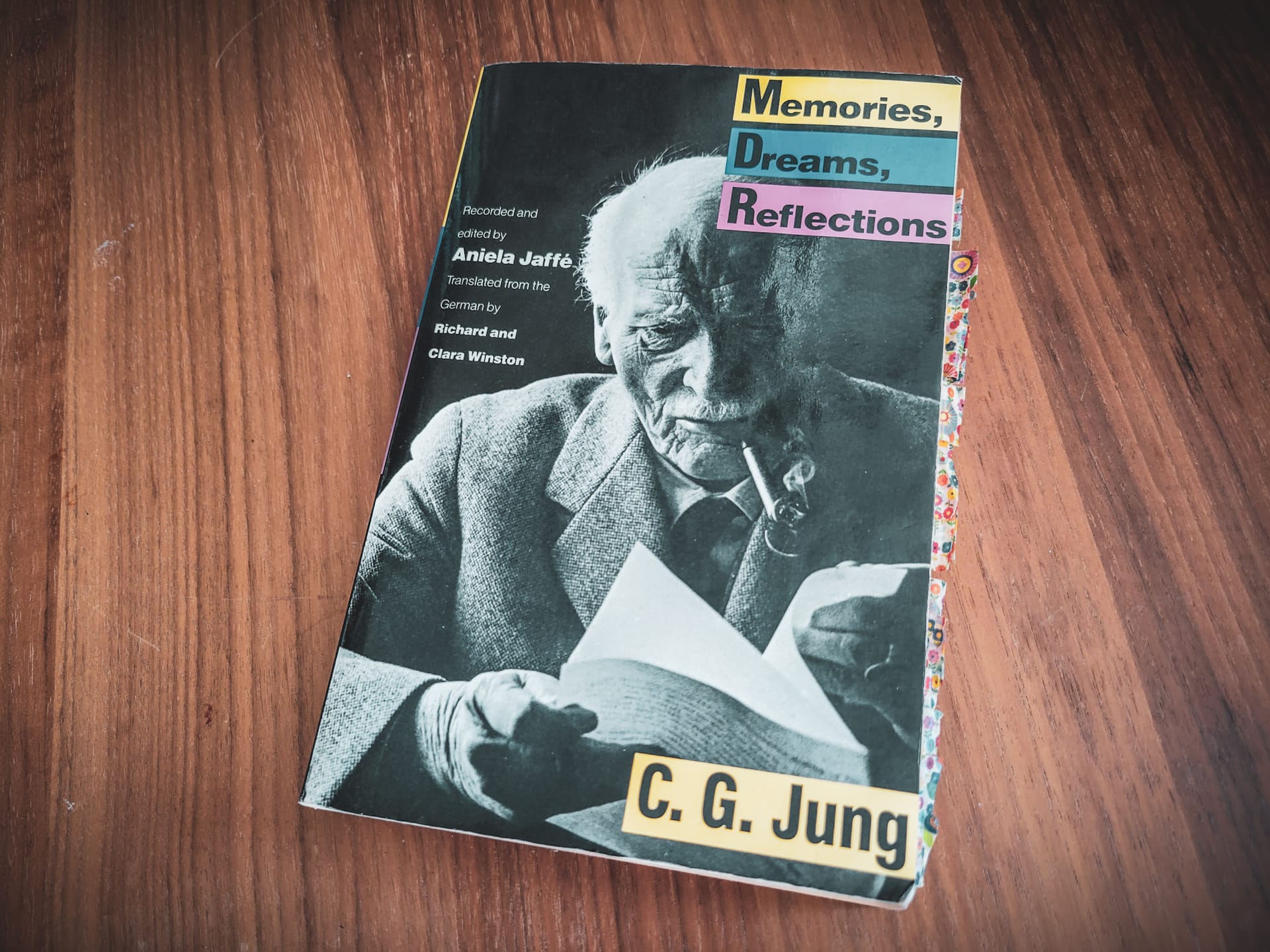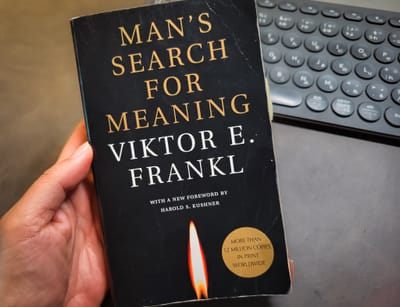Memories, Dreams, Reflections by Carl C. G. Jung

Carl Jung was a Swiss psychiatrist and psychoanalyst who developed analytical psychology, emphasizing the importance of the individual's unconscious, dreams, and the collective unconscious, which contains universal human experiences and symbols.
"Memories, Dreams, Reflections" is an autobiographical book that provides a personal and introspective account of Jung's life, experiences, psychological theories, and reflections on his inner world. Many parts of this book resonate eerily, with my introspective exploration at times when I was around a similar age as he was when he wrote the book. This reaffirms my belief that his theory of collective unconscious is profoundly true.
The part below is one of them. It's the part that got me to begin studying the teachings of the Buddha at the very beginning, before beginning practicing Vipassana meditation. And I was intrigued by how a Swiss-born Christian psychiatrist in the early 20th century would ponder such a thing.
On Life after Death (except taken from p.317-318)
The idea of rebirth is inseparable from that of karma. The crucial question is whether a man's karma is personal or not. If it is, then the preordained destiny with which a man enters life represents an achievement of previous lives, and personal continuity therefore exists. If, however, this is not so, and impersonal karma is seized upon in the act of birth, then that karma is incarnated again without there being any personal continuity.
Buddha was twice asked by his disciples whether man's karma is personal or not. Each time he fended off the question and did not go into the matter; to know this, he said, would not contribute to liberating oneself from the illusion of existence. Buddha considered it far more useful for his disciples to meditate upon the Nidana* (Nibbana or Nirvana) chain, that is, upon birth, life, old age, and death, and upon the cause of effect of suffering.
I know no answer to the question of whether the karma which I live is the outcome of my past lives or whether it is not rather the achievement of my ancestors, whose heritage comes together in me. Am I a combination of the lives of these ancestors, and do I embody these lives again? Have I lived before in the past as a specific personality, and did I progress so far in that life that I am now able to speak a solution? I do not know. Buddha left the question open, and I like to assume that he himself did not know with certainty.
I could well imagine that I might have lived in former centuries and there encountered questions I was not yet able to answer, that I had to be born again because I had not fulfilled the task that was given to me– that is how I imagine it. I will bring with me what I have done. In the meantime it is important to insure that I do not stand at the end with empty hands. Buddha, too, seems to have had this thought when he tried to keep his disciples from wasting time on useless speculation.
The meaning of my existence is that life has addressed a question to me. Or, conversely, I myself am a question which is addressed to the world, and I must communicate my answer, for otherwise I am dependent upon the world's answer. That is a suprapersonal ( above or beyond what is personal) life task, which I accomplish only by effort and with difficulty.
This excerpt is taken from:
Jung, C. G. Memories, Dreams, and Reflection. Vintage Books, 1989. Page 137-138.
*Definition of Nibbana or Nirvana;
Liberation; literally, the "unbinding" of the mind from the mental effluents, defilements, and the round of rebirth, and from all that can be described or defined. As this term also denotes the extinguishing of a fire, it carries the connotations of stilling, cooling, and peace.

www.wisdomlib.org
No spam, no sharing to third party. Only you and me.




